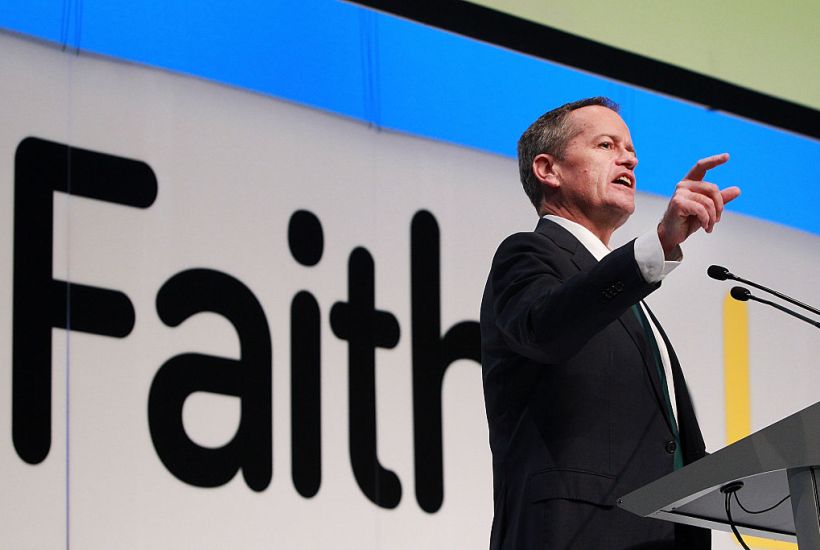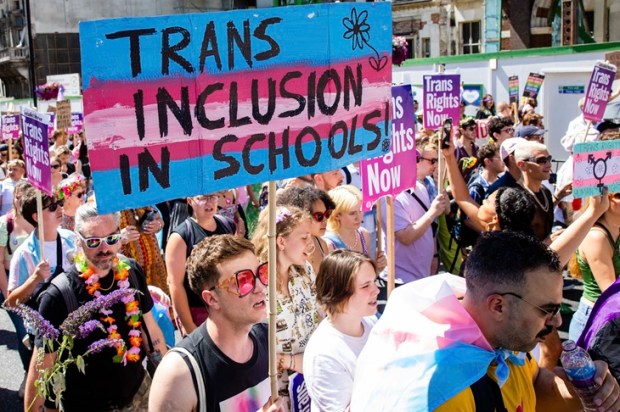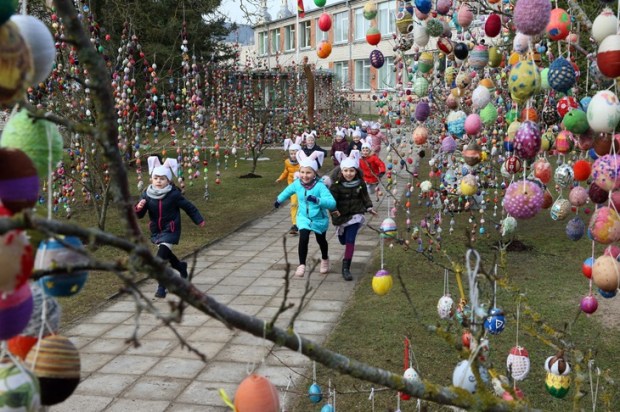An indication of Labor’s concern that in the same-sex marriage vote, the ‘No’s’ were concentrated in mainly migrant-populated suburbs, was Bill Shorten’s anxious letter to Maronite Bishop Antoine Tarabay revealed in The Weekend Australian.
“I can assure you that Labor understands your concerns and takes them most seriously… and in the event that Labor forms the next government, I can guarantee that I will continue to be available to work through any concerns that you may have in relation to religious freedoms in Australia”, ran the opposition leader’s missive.
The Eastern churches – Maronite, Assyrian, Egyptian Coptic, as well as Ba’hais and the sprinkling of Syrian Yazidis who made it to Australia – have joined better-known Catholic and Christian faith communities to register their unease at what the future may hold.
It must have been a wake-up call for Labor to realise that in many inner Labor-held inner city seats migrant communities are turning against Labor policies that so far, have been designed to satisfy young middle class professionals who are as likely, as with the seat of Batman, currently precariously held by David Feeney, to vote Green as Labor.
Almost unnoticed by the main political parties, communities of different-but-Christian faiths are springing up. Last weekend, Saint Narsai Christian College in Horsley Park, Sydney, sought expressions of interest from qualified builders for the construction of school projects, a new science, technology, creative and visual arts facility.
More familiar because it has been the focus of media attention, Hillsong, another faith-based Christian group, saw its music zoom to the ‘most played’ top of the charts both in the US and Australia. And last winter, Canberrans listened to poetry readings in the National Library by a young woman of the Ba’hai faith, one that ironically comes from Iran.
These are communities that hold strongly to tradition, ones that believe in loyalty and faith and have gratitude for the chance to start again in what is still – fingers crossed – a free and democratic society. The Copts ran the Egyptian cotton trade until Nasser forced them out of business. The Armenians were subjected to genocide and ethnic cleansing by Ottoman Turks. Syrian Christians fled their homes as ISIS invaded and their neighbours turned against them.
If you stumble down a rabbit warren of twisting streets in Kolkata and you’ll (eventually, and probably after several confusing wrong turns) find Armenian Street and, after asking further directions, come to the Armenian church of the Nazareth. It’s a very old street in a very old quarter of an old city; once Calcutta under the British.
Armenian Street is named for the Armenian families who arrived as refugees from their homes in the Middle East and made good in British India. Armenians – there’s no more striking a success as the current Premier of New South Wales, Gladys Berejiklian – have always been a hardworking, energetic, educated and entrepreneurial community whose members contributed vastly more in proportion to their numbers to the building of our nation.
Under the Rudd-Gillard governments, immigration and refugee intakes were heavily weighted in favour of Muslim families and individuals, while Christians of the Eastern churches were pushed lower down on the lists. Our refugee intake was skewed for the last couple of decades since the Fraser government allowed the entry of numbers of Lebanese Muslims from agricultural backgrounds, many illiterate in Arabic, let alone English.
Assistant to the Minister for Multicultural Affairs Alex Hawke made the wise and humane decision to allow the Boshre family, Egyptian Copts, to remain in Australia, after intensive lobbying. Labor member for Wills, Peter Khalil – himself a Coptic Christian born in Egypt – urged the government to halt the removal of Copts from Australia. One of the most poignant stories involving Copts is the marking of a child’s hand, a tiny, almost invisible cross on the skin between thumb and forefinger, a sign of Coptic heritage, in the case of his parents’ violent death, a custom, that, hopefully, will never need be used in Australia.
About 20 Coptic families faced removal to Egypt, where ISIS had made Copts their primary targets, but Alex Hawke said his office would review all protection applications by Coptic Christians that were refused by his immigration department and the Administrative Appeals Tribunal.
It’ll soon be Christmas, not only in Australia, but also in the ancient churches of the Middle East. Their people, relocating to Australia, are the diasporic communities we should nurture.
Got something to add? Join the discussion and comment below.
Got something to add? Join the discussion and comment below.
Get 10 issues for just $10
Subscribe to The Spectator Australia today for the next 10 magazine issues, plus full online access, for just $10.


























Comments
Don't miss out
Join the conversation with other Spectator Australia readers. Subscribe to leave a comment.
SUBSCRIBEAlready a subscriber? Log in